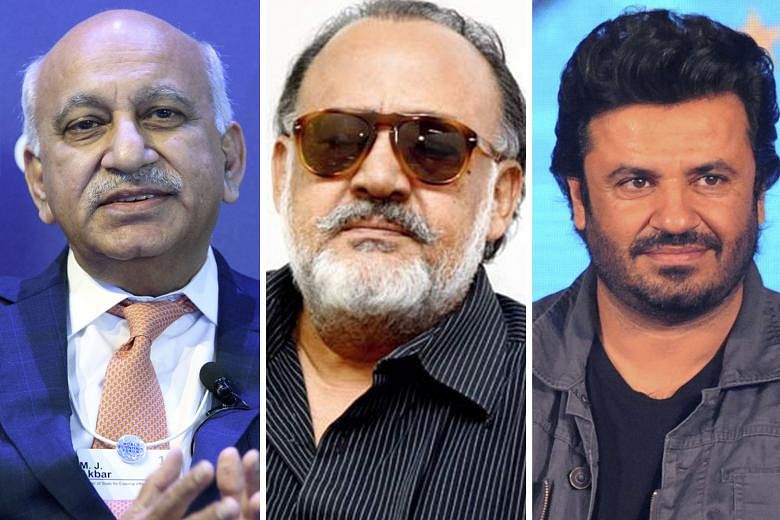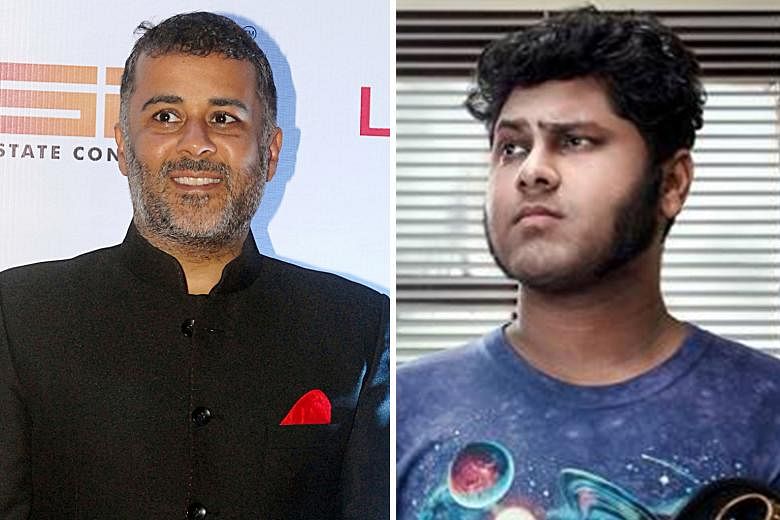A #MeToo movement in India - which remains largely a patriarchal and conservative society - has gathered steam as more women come forward with stories of rape and harassment at the hands of prominent personalities, including a well-known television actor and a junior minister.
Writer and producer Vinta Nanda said she was raped almost two decades ago but did not name the assailant in her post on Facebook, confirming only in later media interviews that he was Mr Alok Nath, a popular actor who has worked in television serials and films.
"I have waited for this moment to come for 19 years," said Ms Nanda on Facebook.
"I can remember more liquor being poured into my mouth and I remember being violated endlessly," she wrote.
Asked about the allegation, Mr Nath told an Indian news channel that he "neither denies nor agrees with it".
"It (rape) must have happened, but someone else would have done it," Mr Nath added.
In a spontaneous outpouring over the last few days, Indian women, who were mostly reticent on the subject previously, have shared stories of sexual harassment in the workplace on social media, particularly Twitter.
Some women shared screenshots of conversations in their effort to name and shame their harassers.
Female lawyers came forward to offer free services to those opting for legal redress.
Women journalists appear so far to have the biggest role in the movement as many of the social media posts focus on goings-on in newsrooms across the country.
In a Twitter post, senior journalist Priya Ramani alleged that she was made to feel uncomfortable during a job interview with Mr M. J. Akbar, a journalist turned politician, in a hotel room.
Mr Akbar, who is now Minister of State for External Affairs, has not responded to the allegations. E-mails to him as well as the spokesman for the ministry have gone unanswered.
A series of tweets last week by journalist Sandhya Menon alleging harassment by senior male colleagues served as the lightning rod for other female journalists.
"Five years ago, if this had happened nobody would have believed me. Now there is an outpouring of support in terms of women saying 'I believe you'. Other women are also coming forward," Ms Menon told The Straits Times.
"I don't want them to go to prison but I do want them to be held accountable," she said, referring to her harassers. "I would like an apology and see the organisation they work with take a stand moving forward," she added.
The #MeToo movement took off in India after actress Tanushree Dutta accused actor Nana Patekar of harassment while both were filming the movie Horn OK Pleassss a decade ago. He has denied the accusation.
Then a young female comedian accused fellow comedian Utsav Chakraborty of sending her a photo of his private parts. Her tweet was followed by others who wrote about similar experiences. The 33-year-old Mr Chakraborty later apologised while maintaining that he had never sent unsolicited pictures.
Author Chetan Bhagat, who has also apologised for inappropriate texts sent to a female journalist, and film director Vikas Bahl, who is accused of harassing a crew member in 2015, were among the other prominent personalities ensnared in the controversy in the past few days.
Many acknowledge that the current #MeToo movement in India is limited to an urban elite and a very small part of the population.
"What you see online is a fraction of India's urban elite, English-speaking population speaking out. Women who aren't in urban spaces have to be reached out to by state media. They have to do stories and reach out to survivors," said Ms Rituparna Chatterjee, an independent journalist and a member of the Network of Women in Media group,
But she noted the mood had changed.
"There is a lot of hope. Finally we have hope. Something may come out of it. It is all out in the open."


